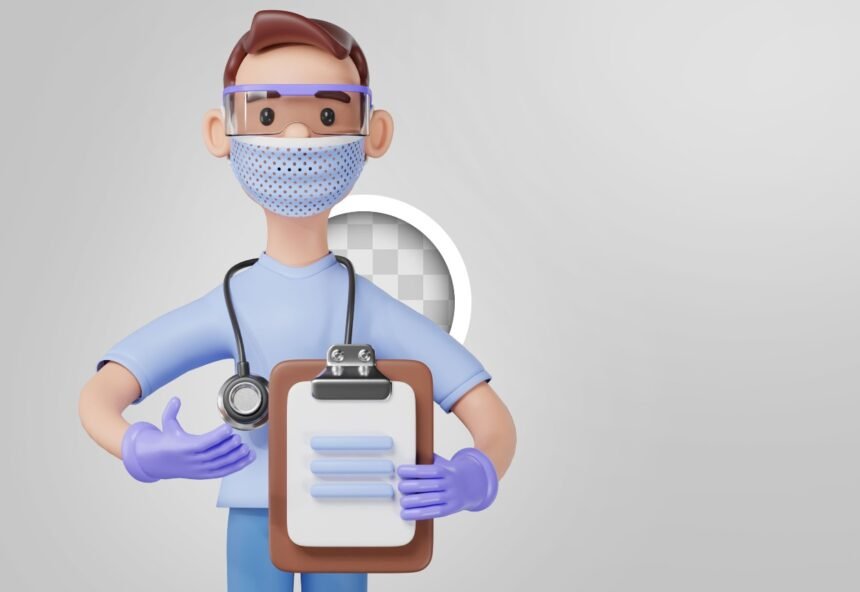Routine medical checkups play an important role in staying healthy. While many people only visit the doctor when they’re feeling sick, routine health exams can prevent serious health issues and catch problems early, before they become more complicated. In this article, we’ll discuss why regular checkups are so important, what to expect during a checkup, and how they can improve your overall health.
Why Are Regular Checkups Important?
Early Detection of Health Issues
The primary benefit of regular checkups is the ability to detect potential health problems before symptoms appear. Many health conditions, such as high blood pressure, diabetes, and certain types of cancer, can develop without noticeable symptoms in the early stages.
- Early Intervention: The sooner a problem is detected, the sooner it can be treated. Spotting health issues early usually makes treatment easier and improves the chances of recovery.
- Preventive Care: Checkups also help you prevent health problems by providing a chance for preventive care, such as vaccinations and screenings.
Monitoring Health Over Time
Regular checkups help monitor your health status over time. This helps you and your doctor monitor progress and adjust your lifestyle or treatment plan whenever necessary.
- Weight and Fitness Monitoring: A doctor can help assess whether you’re maintaining a healthy weight and provide advice on diet and exercise.
- Mental Health Assessments: Regular visits also offer the opportunity to discuss mental health concerns, like stress, anxiety, or depression.
Building a Relationship with Your Doctor
By visiting your doctor regularly, you establish a relationship with them, making it easier to discuss any concerns you may have. This trust can improve your comfort level and ensure you’re more open about your health.
What to Expect During a Regular Checkup
Regular checkups may vary depending on your age, gender, and medical history, but there are several common elements that most checkups include.
1. Health History Review
The doctor will review your personal and family health history to assess any risk factors. This might include:
- Family medical history: illnesses such as heart disease, diabetes, or cancer
- Personal history: Any past surgeries, medical conditions, or ongoing issues
2. Physical Exam
In a physical exam, your doctor will review different parts of your health, such as:
- Blood pressure: To assess cardiovascular health
- Heart and lung check: Listening for abnormal sounds that could indicate underlying issues
- Weight and BMI: To assess body health and risks associated with being overweight or underweight
- Vision and hearing: Especially important as we age, to detect any early signs of decline
3. Screenings and Tests
Based on your age, gender, and health history, your doctor might suggest certain screenings or medical tests, such as:
- Blood tests: To check for cholesterol levels, blood sugar, and other vital markers
- Cancer screenings: Such as mammograms, pap smears, or colonoscopies
- Immunisations: To keep your vaccinations up to date
How Regular Checkups Contribute to Better Health
Preventing Serious Illnesses
Regular checkups can help prevent or manage chronic conditions like hypertension, diabetes, and high cholesterol. By addressing these issues early, you can avoid serious complications like heart disease or kidney failure. For example, studies show that people with high blood pressure who receive regular checkups are more likely to have their condition controlled, reducing the risk of stroke or heart attack.
Reducing Healthcare Costs
Preventive care is often less expensive than treating conditions that have become serious. By detecting problems early, you avoid the need for more costly treatments, hospital visits, or emergency care. For instance:
- Chronic disease management: By catching conditions like diabetes early, you can manage it with lifestyle changes and medication, preventing expensive emergency treatments later.
- Cancer detection: Detecting cancer in its early stages usually makes treatment simpler, more effective, and less expensive than at later stages.
Promoting Longevity and Quality of Life
One of the most significant benefits of regular checkups is that they can help you live a longer, healthier life. Preventive care can reduce the risk of premature death by identifying serious issues before they worsen. Regular visits also help maintain your physical and mental well-being, allowing you to lead an active and fulfilling life.
Data Insight: The Impact of Regular Checkups
Statistics:
- According to the CDC, adults who visit their doctor regularly are 30% less likely to develop serious health complications.
- A study in the Journal of Preventive Medicine found that individuals who have regular checkups are 25% more likely to catch health problems in their early stages compared to those who only visit a doctor when symptoms arise.
How Often Should You Have a Checkup?
The frequency of checkups can vary depending on your age, health status, and risk factors. However, here are some general guidelines:
| Age Group | Frequency of Checkups | Key Screenings/Tests |
|---|---|---|
| Under 30 | Every 2-3 years | Physical exam, blood pressure, STI tests |
| 30-40 years | Every 2 years | Cholesterol check, cancer screenings |
| 40-60 years | Annually | Blood tests, cancer screenings, eye exams |
| 60+ years | Annually or more often | All recommended screenings, vision/hearing tests |
Conclusion
Regular health checkups play an important role in staying well. They allow doctors to spot problems early, give preventive care, and keep you updated on your health needs. By keeping up with routine visits and building trust with your doctor, you can lower the risk of serious illnesses and enjoy a better quality of life. Don’t wait for symptoms to show up—book your checkup now and take a smart step toward a healthier future.

